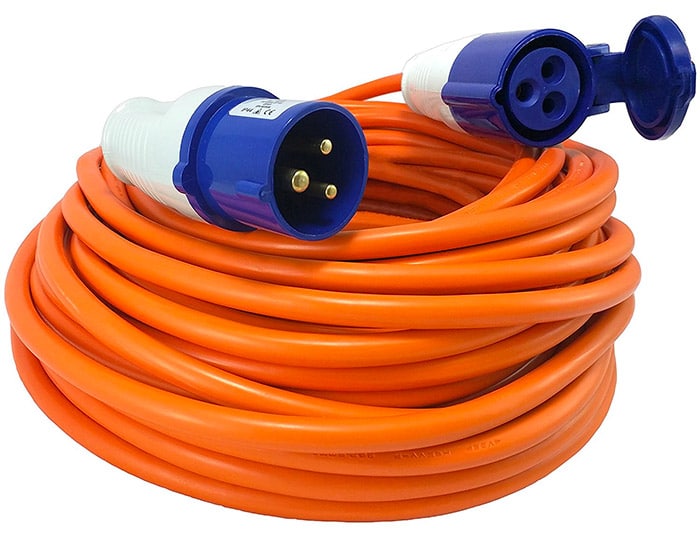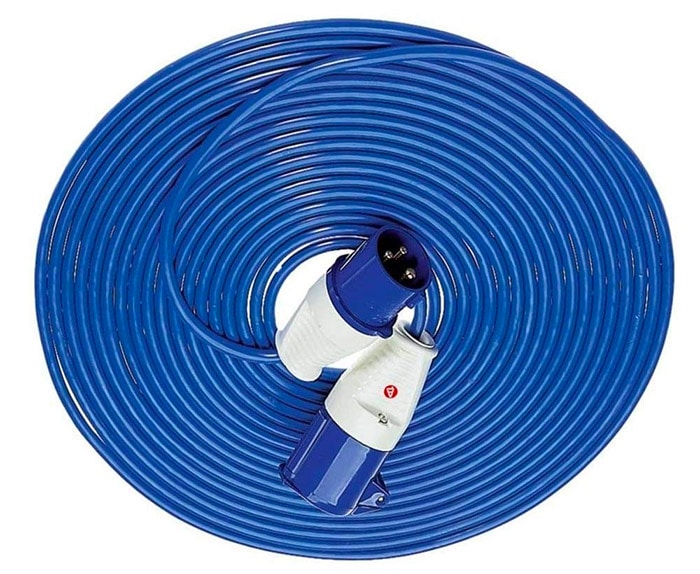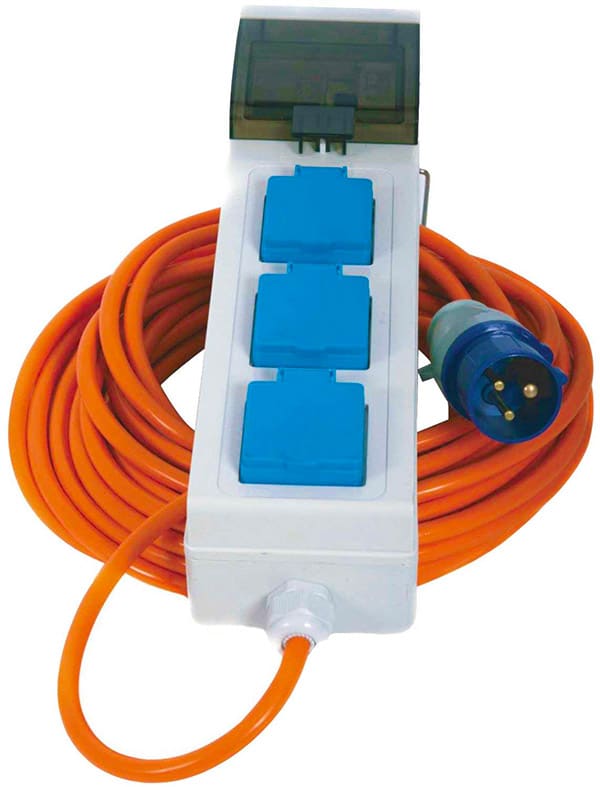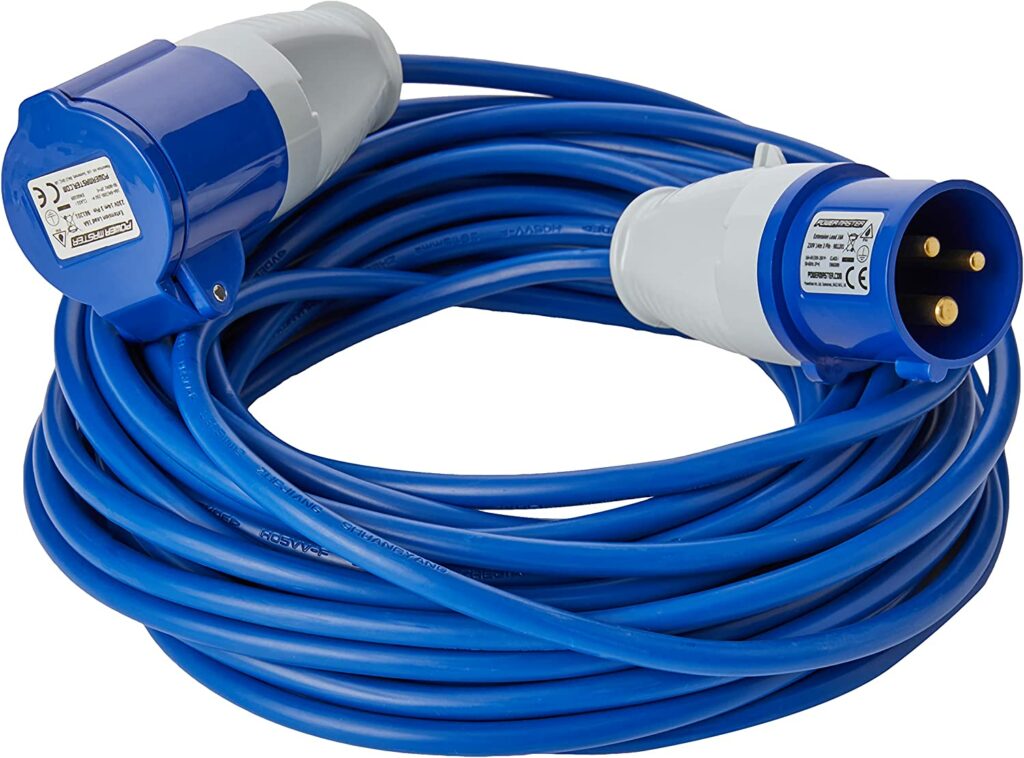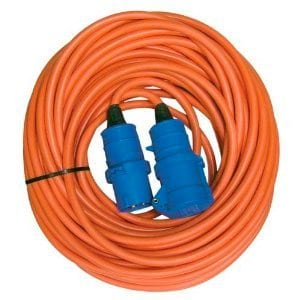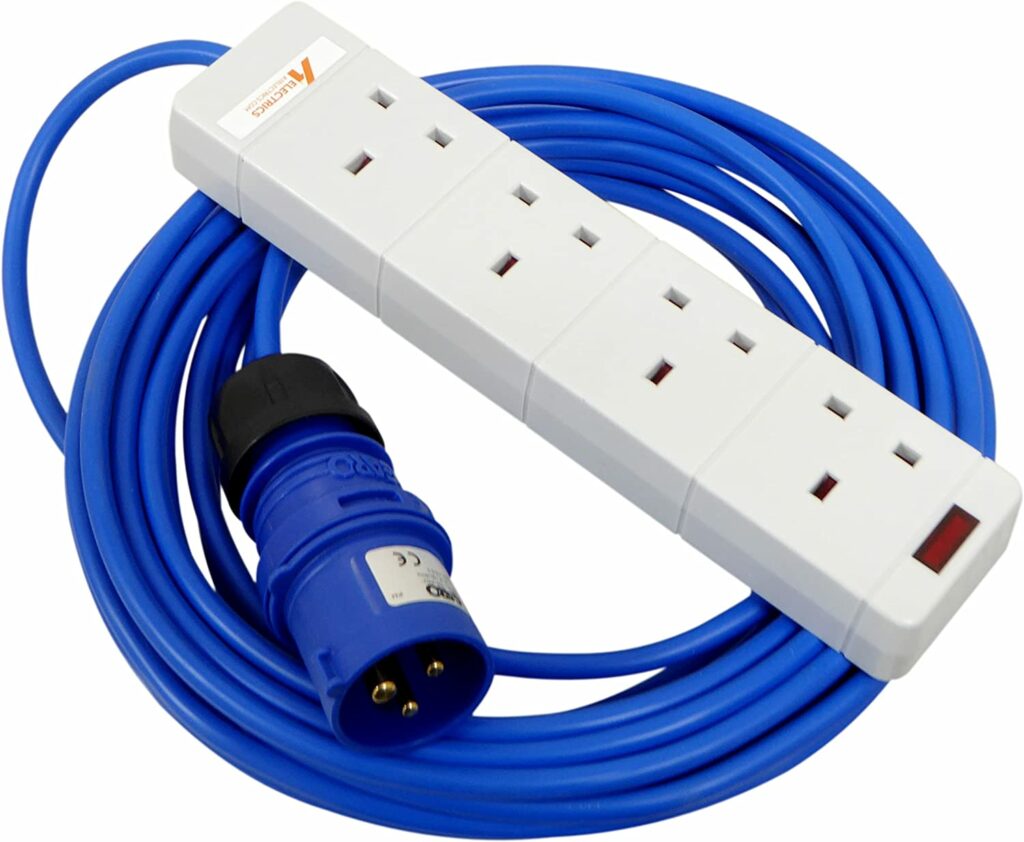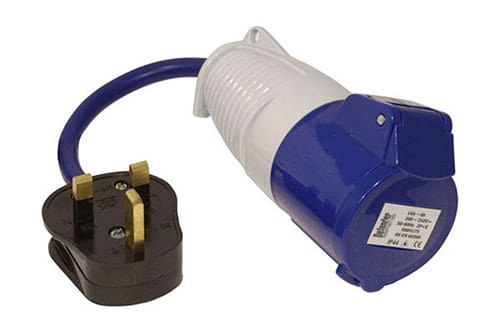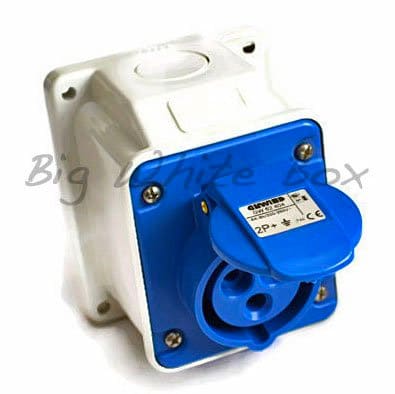Caravan electric hooks ups are a part of caravanning, owning a motorhome or camping that can be rather intimidating if you have never dealt with them before and you are trying to make heads or tails of electrical conversion tables for the first time in your life. While this can be off-putting, once you get past the confusion and are fully-powered up, you will wonder how you ever managed without benefitting from caravan mains electricity.
In the following article, we hope to make the subject a little clearer so that you can really benefit from this excellent part of caravan living. When you can add some home comforts and luxuries to your caravan set up, you can make your time away more enjoyable.
Table of Contents
Best Caravan Hook Up Cables
Now that we’ve covered all the basics, let’s look at what is the best, in our humble opinion, EHU cables available right now.
The first one we have selected is the excellent one from Semloh. This is bright orange, so it is easy to see in the dark or when visibility is poor and has a 240volts/16A plug that can be used to connect to the caravan or camping site’s supply. It also features a 16A mains coupler for a very convenient link to the power supply.
The cable itself is made of 2.5 sq. mm thick copper. With an IP44 rating and the fact that it conforms to EN 60309 and BS 7671, it is also CE approved, making it an ideal purchase.
This is a little shorter than the one above, but still a good buy considering the price. The arctic-grade blue cabling is IP44 rated and 1.5mm thick. It comes with a 16A plug and coupler for easy connection and has a temperature range of -30 to 70 degrees.
If you know you are not going to need a particularly long cable because the power supply is closed to the pitch for your caravan.
The Crusader V762 is an ideal mobile mains kit. It is capable of handling 230v of power and is fully-protected with waterproofing casing. there is a total of 3 sockets and a 10A double pole main circuit breaker 25A RCD. Although it is only 15m cable, like the above cable if you know that your pitch is close to the site power supply. There is even a helpful warning light.
The reputable manufacturer, comes another 14m cable, with a 16A female socket and 13A 3-pin plug connected between a 1.5mm flex.
It has a maximum voltage range between 200 and 250 volts and a frequency range of 50 and 60 hertz. This cable complies with the EN 60309 standard and is IP44 rated.
This is another affordable mains cable that is used a lot on camping and caravan sites and is favoured for its bright orange colour. It has been constructed to meet the appropriate British and International standards like the others on this list.
It comes with a 3-pin plug and socket adaptor to make it easy to connect and thanks to the 25 metres of cabling, if you find your pitch is further away from the power supply than you expect, this will still be long enough.
It is only 10 metres but is ideal if you know you are pitched closed to the power supply on the site. Like the others on the list, it includes everything you need to get your electrical appliances and other devices working.
UK Caravan Electric Hook Up Converter Adaptor Cable
Another important component that is handy to invest in if you are looking to make use of the electricity provided at many caravan and campsites up and down the country is a UK caravan hook up converter adaptor cable. This is used to connect a caravan to a standard 13-amp plug mains socket. It means you can power your tourer while you’re at home and not on site. Ideal for charging your leisure battery and test all your equipment before going on a trip. Although, there are some people who use this kind of connection if they’re using their caravan as an additional room to their property.
There are several different models on the market, mostly doing the same kind of job. Below we highlight one of the best that we came across.
The Pennine UK Mains Hook-up Adaptor conforms to the standards IEC60309-1/2 and BS1361 and comes with a 250mm length of cabling. It consists of two ends, one the Ceeform socket and the other, the 3-pin 13-amp plug. It’s not particularly expensive, especially when you consider just how useful it is.
Although it’s not the same as the product above, the Crusader garage hook-up socket is another great accessory to invest in for connecting your caravan/tourer to your home’s mains supply, in the, as the name suggests, garage. It fully complies with CE marking and has a waterproof rating of IP44.
With this you can have a permanent place to connect your caravan when you are looking to charge the leisure battery, test equipment or use it as a spare bedroom, rather than using the UK mains adaptor. It is rated up to 16-amp, so provides enough power for the main things you’d be using it for.
Understanding Common Amp Ratings
Here comes the science bit. If you have always had trouble understanding what all the different terms mean, we’re here to help.
Watts is used to measure electrical power and amps is used to measure electrical current. An electrical appliance uses a current that’s measured in watts. For instance, most, common hairdryers use a current of 6.5 amps or 1500 watts.
Most have either a 6A, 10A or 16A rating, which indicates how much power they can provide. You will find that some sites in Europe offer 5A supplies. The best way to determine the amount of power you will need for the number of appliances you think you will use.
We don’t advise using a household kettle (8.7A for instance), a fan heater (also 8.7A and a hairdryer (6.5A) on a hook up providing 10A. Not unless you want to be a pain to both the owners of the site and other campers and caravanners when you cause a trip.
So, avoid that from happening by choosing the equipment carefully to avoid damaging both your reputation and appliances.
What Do the Cables Look Like?
Cables designed to be used with electric hook ups have a female and male end socket and a length of cable that measures approximately 25 metres. There are different sizes available to buy. When you are connecting your caravan at a site, remember to connect the female socket to your vehicle first, then connect the male socked into the power bollard. Connect the male from the cable to the female socket on the bollard, turning it clockwise to ensure that it locks securely.
What Does the IP Rating Mean?
IP is short for Ingress Protection and these ratings are defined in the EN60529 international standard. IP Ratings are used to define how effective electrical enclosures are against moisture and foreign bodies, such as dirt and tools, from damaging them.
It’s the second digit in IP Ratings that indicates how waterproof it is. Avoid buying an electric hook up cable that has anything less than an IP44 rating. Failing to do this could lead to a serious accident. We also recommend buying a storage bag for your mains hook up lead.
Using Electric Hook Ups
Using them with your caravan is very much the same as using electricity at home. The main difference is that because you are using a mobile unit, there is a higher risk of mistakes being made. Regularly perform your own safety inspections and arrange for a fully qualified technician to run safety tests periodically.
You can also avoid accidents by investing in an RCD or residual-current device (also known as a residual-current circuit breaker). This is a special device that will switch off an electrical circuit that is unsafe.
The Equipment You Need and Where to Get It
It may be common sense to many of you reading this, but it’s worth noting that run-of-the-mill household extension cables are not suitable for use with electric hook ups. Ideally, you should buy EHU cables from a reputable retailer, whether that is online or offline.
Although, as we noted earlier, EHU cables come in a variety of lengths, we recommend you should invest in a one of 25 metres so that you have enough to stretch to the bollard, even if your pitch is further away than you expected.
Also, make sure you invest in an RCD which, as explained above, will avoid accidents and potential injury. These devices shut off automatically if they detect a problem with the circuit.
We would also recommend that you invest in a plug-in mains tester. Particularly if you are caravanning abroad. This checks the polarity of the electricity supply and that there is an earth connection present.
Furthermore, just in case you haven’t read any of the relevant posts on this site about kettles and toasters and why it’s important to use special low-wattage appliances, we recommend that your normal appliances at home and invest in special wattage models for on the road.
Potential Risks and Dangers
Although electric hook ups are, for the most part, safe; whenever electricity and potentially wet environments are involved you should always be extra careful. Make sure you follow the following tips:
- Only use cables with an IP44 rating or more
- Avoid using too many appliances simultaneously, as this could overload the supply
- Speaking of overloading
Important Information About Overloading
It may come a surprise to learn just how much power those everyday electrical appliances use. For example, that 800W-rated microwave you have probably used closer to 1000W of power, the equivalent of 4.3A, the fan heater with a 2Kw rating using around 8.7A and the average toaster uses approximately 3.9A.
A normal kettle uses 2000W, or 8.7A. Therefore, we recommended above that you take special low-watt appliances. That one household item would use all the power from a 10A hook up.
If you’re not a fan of maths, it might be time to become one because the easiest way to avoid overloading your electric hook up is by doing a quick calculation, that is, V x A = W or Voltage times Current equals Power. This will help you figure out the power required by each appliance and how many you can use together.
In the best-case scenario, if you overload your EHU, the bollard circuit breaker or your own RCD may simply have tripped the circuit. In the worst-case scenario, however, you may have to speak to the owners of the campsite to see if a fuse has been blown or not. This won’t make you popular.
Final Thoughts On Caravan Electric Hook Up Cables
Although mains leads are not essential for a successful caravan, motorhome or campervan trip, it can make your time on the road that little bit more relaxing, comfortable and enjoyable.
For instance, if you are looking to enjoy some jam on toast in the morning, or need that cup of coffee or tea in the morning (and who doesn’t) or you simply want to be able to use your hairdryer or straighteners without any fuss, you need to invest in one.
With the article above you should now have all the information, you need to make sensible choices when it comes to buying one and making use of this helpful extra at the sites where it’s available.
